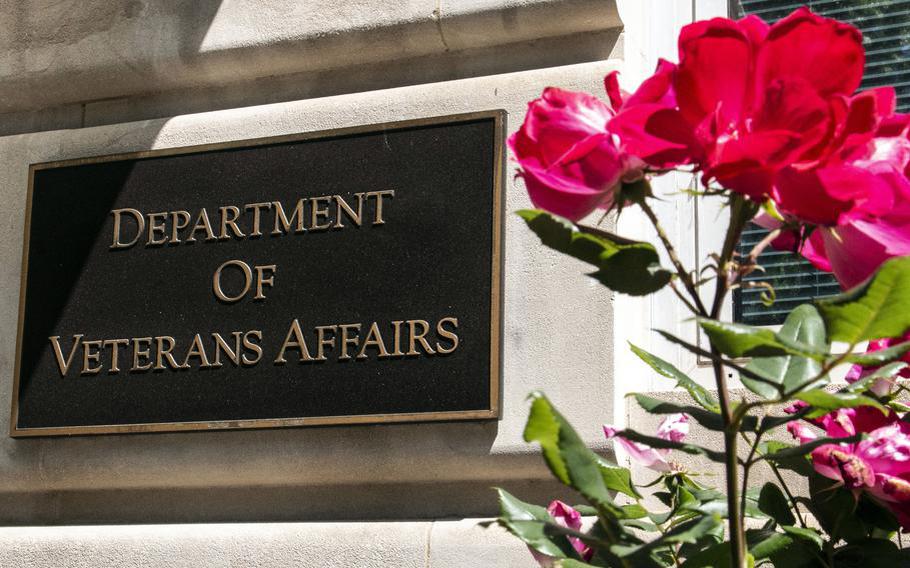
More than 120,000 veterans and their family members still collect paper checks from the Department of Veterans Affairs by mail for disability, survivor support and other compensation. The VA is pushing veterans to receive the money directly deposited to a bank account. (Stars and Stripes)
WASHINGTON — The Department of Veterans Affairs is making a final push to move veterans who receive benefits by paper check to get the money directly deposited to an account after President Donald Trump ordered a shift to electronic banking for federal agencies by Sept. 30.
But more than 120,000 veterans and their family members continue to collect VA checks monthly by mail for disability, survivor support and other compensation. These veterans and their beneficiaries opted not to use direct deposit, or they do not have a bank account, the VA said.
The Trump administration set a target date of Sept. 30 — the last day of fiscal 2025 — for federal agencies to phase out check disbursements and receipts “to the extent possible under law,” according to an executive order signed by Trump.
Transactions by paper check are more costly for the federal government to process and raise the risk of lost payments, theft and delays, according to the executive order.
“I’ve used direct deposit for 15 years and never once had a problem. I don’t have to worry about someone stealing a check from my mailbox,” said Billy Whyde, a 73-year-old Ohio veteran who receives monthly VA disability payments for injuries incurred while on active duty in the Navy from 1969 to 1973. Whyde is a former petty officer who served in Vietnam.
Paper checks issued by the Treasury Department are 16 times more likely to be reported lost or stolen, returned undeliverable or altered than an electronic funds transfer, according to the executive order.
But with direct deposit, Whyde said he knows when his monthly disability payments will arrive in his bank account, making it easier to budget household expenses.
“I don’t have to worry about the checks not showing up,” said Whyde, who is retired and depends on the compensation to pay for groceries and other essentials.
But even with the president’s executive order, the VA cannot force a veteran or a veteran’s family member to choose direct deposit over a paper check, the VA said.
“If a veteran does not want to get banked or if they simply like receiving a check, they can continue to do so despite the risks,” said Macaulay Porter, the VA’s deputy assistant secretary of public affairs.
Porter said the VA has had success in helping veterans establish bank accounts to make it more convenient to receive their benefits. More than 500,000 veterans have used the program to open bank accounts since 2019.
The VA has partnered with 130 financial institutions that have pledged to provide veterans and their families with free and low-cost banking services to open accounts. Financial counseling is also a free service for veterans.
VA figures do not suggest a higher proportion of veterans than the general population do not use the nation’s financial system, Porter said.
But Whyde said he has buddies from military service who refuse to share their personal bank account information with the VA to allow for electronic funds transfers.
“They would rather cash their checks and stash their money in a safe at home,” he said. “Some want to hide the information from ex-wives or the IRS. Others just don’t trust Uncle Sam at all.”